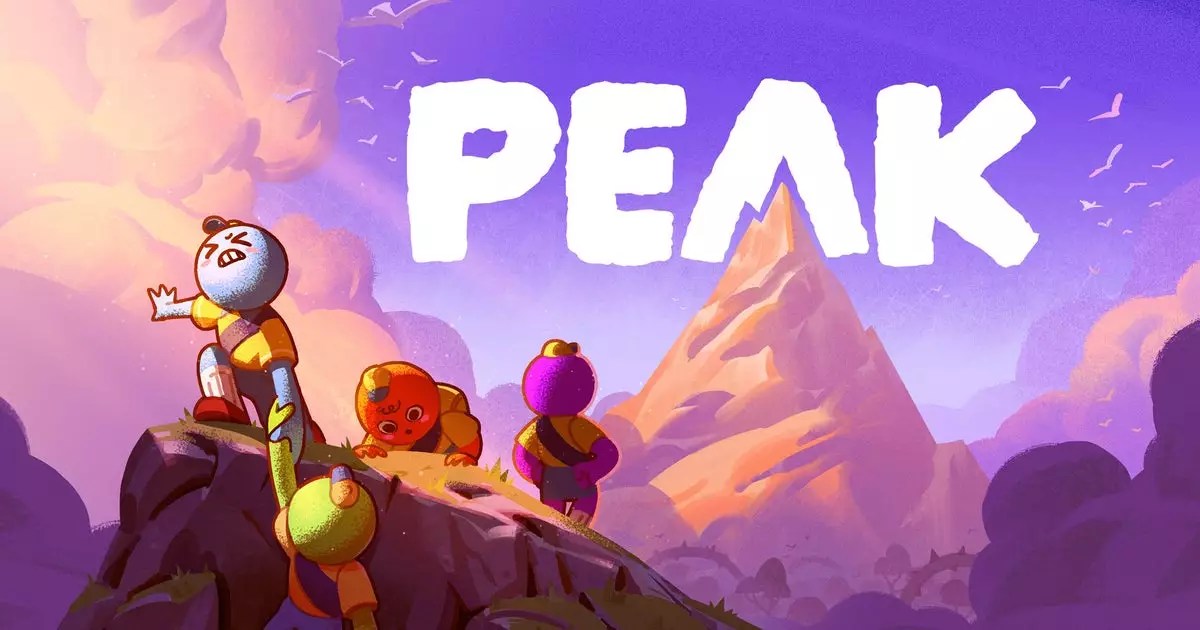When developing video games, the process can often be a drawn-out marathon filled with revisions, reworks, and relentless testing. However, in an intriguing twist, the creators of Peak—an engaging co-op game centered around the whimsical (and often chaotic) experience of mountain climbing—crafted their product during a single, intense month-long game jam. This whirlwind endeavor showcases not just the talent of its creators, but also their willingness to adapt and innovate under pressure.
Interestingly, the spark for Peak came from an unorthodox source: jealousy. Nick Kaman, the head of Aggro Crab, shared that the original impetus for creating Peak was sparked by the astonishing success of Content Warning, a game developed by another team within a similar timeframe. With feelings of envy (albeit humorous), Kaman’s team decided they would make their mark by attempting a similar feat. This highlights a crucial insight about game development: motivation can stem from a variety of emotions, even feelings traditionally viewed as negative. In a competitive landscape, the drive to succeed can often turn rivalry into creative energy, igniting the potential for achieving remarkable results quickly.
A Month in Seoul: The Power of Collaboration
In a surprising twist for game developers, Kaman and his team made their way to Seoul to join forces with Landfall, another creative outfit eager to explore new concepts. Their abode for this month? An Airbnb that became a crucible for creativity and productivity. The first step upon arrival? Transforming their temporary residence into a makeshift studio by assembling desks and chairs from IKEA. This simple yet powerful action reflects a broader philosophy in the indie game development community: resourcefulness is key, and innovative solutions often come from humble beginnings.
Moreover, the collaborative nature of their process cannot be overstated. The initial concept for Peak first emerged in a hot tub—quite the unconventional brainstorming venue—during a prior event in Sweden. What began as a vague idea blossomed into a clear vision of a group of scouts lost on an island, filled with absurdities and slapstick moments. This evolution underscores the significance of spontaneous, informal settings in sparking creativity. Sometimes, the best ideas are born far from the confines of traditional workspaces.
Rethinking the Development Process: Fun as a Core Element
The developers’ time in Korea was not solely devoted to the rigors of coding and programming. Interestingly, their creative process was complemented by more relaxed activities—mainly sharing meals and engaging in discussions about the game’s development. Kaman described this experience as “intense” but also one of the most enjoyable periods he has ever had while developing a game. This dichotomy of pressure and pleasure illustrates a vital aspect of the industry: enjoyment fuels creativity. When developers derive joy from their work, they create a product that resonates with players, ultimately leading to the game’s success.
Despite its relatively short development cycle, Peak’s performance on the market has been noteworthy. However, it’s critical to understand that such achievements don’t imply a simple formula for gaining success in game development. Experienced creators like Kaman and his peers recognize the extensive knowledge and skills they possess, honed over years of dedicated work. The allure of shortcuts is tempting but can be misleading. The essence of their success lies not merely in the speed of development, but in the passion, collaborative spirit, and innovative thinking that propelled this project.
Lessons from Peak: The Emotional Landscape of Game Development
The journey of Peak attests to the dynamic nature of creativity within the gaming industry. While it is easy to attribute the game’s success to a uniquely structured timeline, the real truth lies deeper in the emotional currents that drove the developers. The blend of feelings—from excitement and envy to joy and camaraderie—shaped the ultimate experience they crafted. In an industry often characterized by isolation and intense competition, Peak’s story champions the power of collaboration and emotional investment.
In the end, Peak stands as a testament to the fact that sometimes the most striking innovations come from adapting to the situation at hand, drawing anger, humor, passion, and joy from experiences, and embracing an unconventional journey. Instead of viewing development as a dreary process, it can be transformed into lively explorations of creativity and collaboration, opening doors to unexpected outcomes and joys.


Leave a Reply